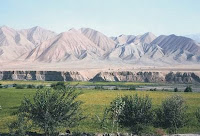Showing posts from category conflict.
-
Weekly Reading
›In an open letter on water policy to the next U.S. president, Peter Gleick of the Pacific Institute urges the next presidential administration to develop a national water policy; highlight national security issues related to water; expand the United States’ role in addressing global water problems; and integrate climate change into all federal planning and activity on water.
A recent survey conducted by Liberia’s Truth and Reconciliation Commission found that land disputes are a key threat to peace in Liberia, reports BBC News.
Mikhail Gorbachev, former president of the former Soviet Union, called for a global glasnost, or openness, on environmental problems. “This financial turmoil, which will heavily affect the real economy, was absolutely predictable, and it is only one aspect of the wider crisis of all the current development systems,” said Gorbachev. “In fact, there are connected simultaneous crises that are rapidly emerging. These relate to energy, water, food, demography, climate change and the ecosystem devastation.”
The World Health Organization has developed a plan for research on the health impacts of climate change, reports the Science and Development Network. -
The New U.S. Army Field Manual on Stability Operations: Visionary Shift or Missed Opportunity?
›October 17, 2008 // By Will Rogers Last week, the U.S. Army released its new field manual on stability and reconstruction operations, FM 3-07, the 10-month interagency brainchild of the Army, State Department, and U.S. Agency for International Development (USAID). Some have hailed the doctrine as a fundamental shift in Army policy that recognizes the significance of non-military threats to U.S. national security, while others have criticized it as a missed opportunity to critically re-examine notions of what constitutes security.
Last week, the U.S. Army released its new field manual on stability and reconstruction operations, FM 3-07, the 10-month interagency brainchild of the Army, State Department, and U.S. Agency for International Development (USAID). Some have hailed the doctrine as a fundamental shift in Army policy that recognizes the significance of non-military threats to U.S. national security, while others have criticized it as a missed opportunity to critically re-examine notions of what constitutes security.
The new doctrine aims to shift the burden of fostering stability in fragile states from the Army to the State Department and USAID, which are better prepared to address non-military threats. To paraphrase Lieutenant General William Caldwell IV at an October 8, 2008, event sponsored by the Center for Strategic and International Studies: The Army is up against non-military threats that can cause widespread destabilization—such as, access to basic necessities like food, water, and shelter—and with its traditional mandate to win wars with overwhelming military force, the Army does not have the expertise to address these threats.
Instead, a new Civilian Response Corps under the State Department and USAID will receive crisis training from the Army to prepare for managing conflict scenarios. The Army hopes that this interagency effort will expand civilian agencies’ capacity to prevent instability from devolving into state failure, which increases the chances of the Army being deployed. Sustainability and human security are clearly viewed as ways to achieve stability and prevent costly military deployments, not as goals in and of themselves.
According to Geoff Dabelko, director of the Environmental Change and Security Program, it is important “to distinguish whether addressing sustainability needs is a tactic or a goal or both. It can be both for militaries but at times it is merely a tactic to achieve stability rather than a fundamental rethink of how security should be defined.”
Tad Davis, the Army’s deputy assistant secretary for environment, safety, and occupational health, recently said, with respect to military operations and access to water in Iraq, “You can get out there…and deploy to an area for conducting operations, but if water’s not there for drinking purposes and for cooking, showering, laundry, things like that, then you’re not going to be able to sustain the force.” Clearly, Davis views environmental sustainability as key to the Army’s operations, but not necessarily as a critical component of a lasting peace.
Yet others argue that the Army would be wise to adopt long-term environmental sustainability and human security as immediate goals, as they would reduce the frequency with which the Army is dragged into conflicts. Dabelko wonders whether the War on Terror might be more successful “if part of a diversified response to the attacks of 9/11 would have included an aggressive effort to address poverty as an underlying source of grievances around the world rather than having just a uni-dimensional strategy of use of force. The symbolic and the real impact of such a strategy might have been quite tangible.” Nonetheless, the Army’s recognition that security is broader than military force is a laudable step—hopefully not the last—in the right direction.Photo: Two Iraqi girls from Al Buaytha, Iraq, pump water from a U.S. Army-supplied portable water tank. Courtesy of flickr user James Gordon. -
Protecting the Soldier From the Environment and the Environment From the Soldier
›The end of the Cold War coincided with a decline in the total number of armed conflicts around the world; moreover, according to the UN Peacekeeping Capstone Doctrine, civil conflicts now outnumber interstate wars. These shifts have given rise to a new generation of peace support operations in which environmental issues are playing a growing role. The number of peace support operations launched by non-UN actors—including the EU and NATO—has doubled in the past decade.
The environment can harm deployed personnel through exposure to infectious diseases or environmental contaminants, so preventive measures are typically taken to protect the health of deployed forces. However, because environmental stress caused by climate change might act as a threat multiplier—increasing the need for peace support operations—it is ever more necessary for the international community to conduct crisis management operations in an environmentally sustainable fashion. But can the deployed soldier, police officer, or search-and-rescue worker really act as an environmental steward?
I believe important steps are being taken to ensure the answer to this question is “yes.” The UN Department of Peacekeeping Operations recently drafted environmental protection policies and guidelines for UN field missions and started to implement them through the UN Department of Field Services and the UN Mission in Sudan. Various pilot projects are underway, including an environmental awareness and training program and sustainable base camp activities, such as alternative energy use. These projects are coordinated by the Swedish Defence Research Agency and funded by the Swedish Ministry for Foreign Affairs.
Within NATO, Environmental Protection Standardization Agreements increase troop-contributing nations’ ability to work together on environmental protection. The NATO Science for Peace and Security Committee is also funding a set of workshops on the “Environmental Aspects of Military Compounds.”
Furthermore, defense organizations in Finland, Sweden, and the United States have cooperated to produce an Environmental Guidebook for Military Operations. The guidebook, which may be used by any nation, reflects a shared commitment to proactively reduce the environmental impacts of military operations and to protect the health and safety of deployed forces.
While the United Nations, NATO, and individual contributing nations are trying to reduce the environmental impact of their peacekeeping operations, the EU is lagging behind. In theory, the EU should find it easy to incorporate environmental considerations into its deployments. Most EU members are also NATO members, so if they can comply with NATO environmental regulations in NATO-led operations, they should be able to do the same with similar EU regulations in EU-led operations. Yet comparable regulations do not exist, even though the EU is often considered environmentally proactive—for instance, in its regulation of chemicals. Therefore, for the EU, it is indeed time to walk the walk—especially in light of its growing contribution to peace support operations, with recent operations conducted in Bosnia and Herzegovina and Chad, and an upcoming intervention slated for Somalia.
Clearly, no single organization can conduct all of the multifaceted tasks required to support and consolidate the processes leading to a sustainable peace; partnerships between military and civilian actors are indispensable to achieving global stability. We must do a better job mainstreaming environmental considerations into foreign policy and into the operations of all stakeholders in post-conflict settings, with the understanding that the fallout from a fragile environment obeys no organizational boundaries. One small step in this direction is an upcoming NATO workshop, “Environmental Security Concerns prior to and during Peace Support and/or Crisis Management Operations.” If militaries continue to contribute to climate change and other forms of environmental degradation, they will be partially to blame when they are called in to defuse or clean up future conflicts over scarce, degraded, or rapidly changing resources.
Annica Waleij is a senior analyst and project manager at the Swedish Defence Research Agency’s Division of Chemical, Biological, Radioactive, and Nuclear Defence and Security. The views expressed in this article are those of the author and do not reflect the official policy or position of the Swedish Ministry of Defence. -
The Security Implications of Societies’ Demographic Growing Pains
› In their provocative article in The National Interest entitled “The Battle of the (Youth) Bulge” (subscription required), Neil Howe and Richard Jackson take a critical look at the limits of the “youth bulge hypothesis,” which posits that a large and growing proportion of young adults puts societies at greater risk for political instability and civil conflict. The authors’ bigger target in this article is an assumption they perceive as widespread in the security community: that ongoing decline in youth bulges will necessarily produce what the authors dub a “demographic peace.” Howe and Jackson argue that such an expectation is overblown, and that’s clearly the case: Researchers, including myself, describe the effects of a declining youth bulge in terms of lowered risk of instability or conflict (see articles in ECSP Report 10 and ECSP Report 12). Its effects have never been proven absolute or inalterable.
In their provocative article in The National Interest entitled “The Battle of the (Youth) Bulge” (subscription required), Neil Howe and Richard Jackson take a critical look at the limits of the “youth bulge hypothesis,” which posits that a large and growing proportion of young adults puts societies at greater risk for political instability and civil conflict. The authors’ bigger target in this article is an assumption they perceive as widespread in the security community: that ongoing decline in youth bulges will necessarily produce what the authors dub a “demographic peace.” Howe and Jackson argue that such an expectation is overblown, and that’s clearly the case: Researchers, including myself, describe the effects of a declining youth bulge in terms of lowered risk of instability or conflict (see articles in ECSP Report 10 and ECSP Report 12). Its effects have never been proven absolute or inalterable.
For me, Howe and Jackson’s strongest points lie in their identification of four complications that can arise at various points during the demographic transition:- Unsynchronized fertility decline among politically competitive ethnic groups, leading to shifts in ethnic composition;
- Possible instabilities arising from a secondary youth bulge (an echo bulge), created as the previous generation’s bulge passes through its prime childbearing years (see figure);
- Questions about whether fertility can decline “too fast”; and
- The implications of continuous flows of foreign migrants into low-fertility countries—in particular, European countries today.
Some of Howe and Jackson’s other points seem muddled and inconsistent with quantitative studies, however. They cite researchers who argue that the mid-stages of economic development are the most threatening to security, and then link this to the demographic transition by declaring that “economic development…tend[s] to closely track demographic transition in each country.” This is mistaken: An extensive body of research informs demographers that economic development and fertility decline have been only weakly linked, even during the European fertility decline. While in several countries (including Brazil, Mexico, and South Africa) fertility declined abreast of rising per capita income, none of the East Asian “tigers” escaped the World Bank’s low-income country status until fertility dropped to near 3 children per woman, even though this measure had been declining steadily for years.
Nor can Howe and Jackson validate their assertion that having one of the middle structures is riskier than having one of the younger structures. Studies using the Uppsala Conflict Database’s record of minor and major conflicts show that, from 1970-1999, the very youngest countries (median age less than 18) and the middle group (median age 18-25) both experienced elevated risks of the emergence of a civil conflict —and both have large youth bulges. As Leahy and colleagues have shown, the youngest group was at greatest risk.
However, there is a way to salvage Howe and Jackson’s point. When infant mortality declines rapidly in the absence of fertility decline, age structures actually grow younger—in other words, some aspects of development push countries back into the youngest, most vulnerable category. If this is what the authors mean, they could have been clearer.
The authors go on to contend that neo-authoritarian regimes are likely to crop up among late-transition age structures. Here Howe and Jackson cede demography too much power over a state’s destiny. If one considers Deng Xiaoping the architect of China’s neo-authoritarian state, Lee Kwan Yew Singapore’s, Ali Khamenei Iran’s, and Hugo Chávez Venezuela’s, then this thesis has little empirical support. None of these regimes were established during the latter part of the demographic transition. Deng, Lee, and Ali Khamenei actually hastened fertility decline from high levels. I will, however, grant that Deng and Lee grew powerful as their countries’ age structures matured, and as that maturity promoted economic growth and reduced political tensions.
Overall, I’m much more positive than Howe and Jackson. I believe that parts of the world will, indeed, be left more politically stable and more democratic when very young age structures mature. Look at much of East Asia. Few veterans of conflicts in that region would have expected that, in 2008, most of its countries would be listed as vacation spots. I find it hard to believe, as Howe and Jackson do, that the most advanced phases of the demographic transition—a period yet to come—pose the greatest global security threats. Of course, I’m guessing…and so are they.
Richard Cincotta is the consulting demographer for the Long-Range Analysis Unit of the National Intelligence Council.
Figure: Iran’s 2005 youth bulge could give rise to an echo bulge in 2025. Courtesy of Richard Cincotta. -
Dispatches From the World Conservation Congress: Geoff Dabelko on Wartime Environmental Protection, Post-Conflict Peacebuilding
›October 8, 2008 // By Geoffrey D. Dabelko The lawyers are out at the World Conservation Congress Forum in Barcelona. Carl Bruch of the Environmental Law Institute in Washington, DC, was one of several speakers at “Armed Conflict and Environment: Protecting the Environment During War and Improving Post-Conflict Natural Resource Management.”
The lawyers are out at the World Conservation Congress Forum in Barcelona. Carl Bruch of the Environmental Law Institute in Washington, DC, was one of several speakers at “Armed Conflict and Environment: Protecting the Environment During War and Improving Post-Conflict Natural Resource Management.”
Bruch is leading a forward-leaning initiative entitled “Strengthening Post-Conflict Peacebuilding and Recovery Through Natural Resource Management” that is collaborating with Tokyo University and the UN Environment Programme’s Conflicts and Disasters Programme to analyze cases from around the world where the environment is key to causing, extending, ending, or recovering from conflict. Bruch and his team of authors are trying to glean lessons for peacebuilding by examining natural resource management in post-conflict societies. Bruch emphasized that the goal is to provide actors on the ground who are not environmental practitioners with the practical means to integrate natural resource management into their operations. Michael Bothe, an expert on the environment and laws of war from Goethe University in Frankfurt, Germany, suggested IUCN could play a positive role in using the parks-for-peace process to establish parks as demilitarized zones. He noted that peacetime treaties often remain in effect in times of conflict, but that obligations in international environmental treaties are promotional and therefore have limited impact during war. Bothe called for more work in three areas:
Michael Bothe, an expert on the environment and laws of war from Goethe University in Frankfurt, Germany, suggested IUCN could play a positive role in using the parks-for-peace process to establish parks as demilitarized zones. He noted that peacetime treaties often remain in effect in times of conflict, but that obligations in international environmental treaties are promotional and therefore have limited impact during war. Bothe called for more work in three areas:- Passing laws that use parks-for-peace mechanisms to prevent valuable habitats from becoming military objectives;
- Clarifying how the military doctrine of proportionality of response applies to environmental damage; and
- Specifying the application of customary (i.e., traditional) law regarding environmental protection during armed conflict.
Illustrating the diversity of participants at the World Conservation Congress, questioners from Iraq, Lebanon, Pakistan, Angola, Georgia, and Germany focused on environmental damage from conflicts in their regions.
- Passing laws that use parks-for-peace mechanisms to prevent valuable habitats from becoming military objectives;
-
Dispatches From the World Conservation Congress: Geoff Dabelko on Environment, Security
›October 7, 2008 // By Geoffrey D. Dabelko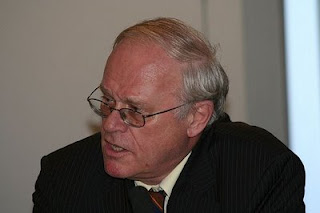 “The input of the security sector is indispensable for finding the balance” between mitigation and adaptation efforts to combat climate change, said Wouter Veening, co-founder and chairman of the Institute for Environmental Security, based in The Hague, Netherlands. Veening was the first among many speakers in a linked set of panels entitled “Environment and Security Challenges for Change” here at the World Conservation Congress in Barcelona.
“The input of the security sector is indispensable for finding the balance” between mitigation and adaptation efforts to combat climate change, said Wouter Veening, co-founder and chairman of the Institute for Environmental Security, based in The Hague, Netherlands. Veening was the first among many speakers in a linked set of panels entitled “Environment and Security Challenges for Change” here at the World Conservation Congress in Barcelona. -
In Kashmir, Diplomacy Soothes Friction Over Water Resource Management
›October 3, 2008 // By Will Rogers The conflict over resource-rich Kashmir has sparked renewed tension between India and Pakistan, this time over access to one of Asia’s most indispensable commodities: water. The latest dispute erupted on September 13, 2008, with allegations by Pakistan that India had violated a 2005 World Bank agreement over the operational schedule of the Baglihar Dam, which lies on the Chenab River, just inside Indian-administered Kashmir. That agreement “required that filling [of the dam] should take place between June 21 and Aug 31 with prior consent of Pakistan and subject to a condition that river flows should not drop below 55,000 cusec inside Pakistan at any time,” according to Dawn. India continued to fill the dam well into September, provoking outrage from Pakistan, despite guarantees that water flow into Pakistan would not diminish. Pakistani officials reported that “Pakistan had been losing up to 15,000 cusec of water every day because of India’s action.”
The conflict over resource-rich Kashmir has sparked renewed tension between India and Pakistan, this time over access to one of Asia’s most indispensable commodities: water. The latest dispute erupted on September 13, 2008, with allegations by Pakistan that India had violated a 2005 World Bank agreement over the operational schedule of the Baglihar Dam, which lies on the Chenab River, just inside Indian-administered Kashmir. That agreement “required that filling [of the dam] should take place between June 21 and Aug 31 with prior consent of Pakistan and subject to a condition that river flows should not drop below 55,000 cusec inside Pakistan at any time,” according to Dawn. India continued to fill the dam well into September, provoking outrage from Pakistan, despite guarantees that water flow into Pakistan would not diminish. Pakistani officials reported that “Pakistan had been losing up to 15,000 cusec of water every day because of India’s action.”
Regional water disputes are no anomaly in Central, East, and South Asia, where population growth and increases in per capita consumption have led to competition over water resources. In recent years, Indiahas invested in hydroelectric projects—such as the Baglihar Dam, projected to generate 450-900 megawatts of electricity—to satisfy a burgeoning middle class hungry for energy. With the dam just up the river from the Pakistani border, Pakistanis have long worried that the dam would severely limit the region’s water and curtail farmers’ ability to irrigate crops. Since construction began in 1999, Pakistani officials have objected to the project, arguing that the more energyIndia attempts to generate from the dam, the less water will reachPakistan.
Last week, Pakistanissued a formal protest to the Permanent Indus Commission, a body formed by the 1960 treaty, over the reduction of Chenab River flows and asked for an emergency meeting with the governing body in order to address the danger posed to Pakistani rice farmers who rely on water flow to irrigate their crops. Since then, prospects for diplomatic resolution have warmed: Pakistani President Asif Zardari and Indian Prime Minister Manmohan Singh met on the “sidelines of the United Nations General Assembly” last week to discuss the issue. Meanwhile, the Permanent Indus Commission is schedule to meet this month, following an invitation from India to Pakistan’s Indus Water Commissioner to meet to resolve the issue.
Fortunately, water disputes have been one area where Pakistan and India have been able to manage their grievances and find resolution through diplomacy rather than force. By working together on environmental issues—whether water resource management, transboundary forest conservation, or endangered species protection—where cooperation is often possible, even longtime foes can move closer to resolving their larger conflict.
Photo: The Chenab River, flowing here through Himachal Pradesh in the Indus Basin, provides farmers and local populations with the water required to meet their sustainable needs. Courtesy of flickr user Motographer. -
Drought, War, Refugees, Rising Prices Threaten Food Security in Afghanistan
›September 23, 2008 // By Rachel WeisshaarDrought, continuing violence, returning refugees, and the spike in global food prices are combining to produce a serious threat to Afghan food security, reports the New York Times. The World Food Program has expanded its operations in Afghanistan to cover a total of nearly 9 million people through the end of next year’s harvest, sending out an emergency appeal to donors to cover the costs.
According to a report published earlier this year by Oxfam UK,[W]ar, displacement, persistent droughts, flooding, the laying of mines, and the sustained absence of natural resource management has led to massive environment degradation and the depletion of resources. In recent years Afghanistan’s overall agricultural produce has fallen by half. Over the last decade in some regions Afghanistan’s livestock population has fallen by up to 60% and over the last two decades, the country has lost 70% of its forests.
A post-conflict environment assessment conducted by the UN Environment Programme (UNEP) in 2003 confirms these dire trends in further detail. “In some areas, we found that up to 95 percent of the landscape had been deforested during the conflict—cut for fuel, bombed to remove cover, or removed to grow crops and graze livestock. Many people were fundamentally dependant on these forests for livelihoods. Without them, and without alternatives, Afghans were migrating to the cities or engaging in other forms of income generation—such as poppy production for the drug trade—in order to survive,” writes UNEP’s David Jensen in a forthcoming article in ECSP Report 13.
Despite the fact that agriculture has traditionally employed or supported approximately 80 percent of Afghans, says Oxfam, donors have vastly underinvested in the sector, spending only $300-400 million over the past six years directly on agricultural projects—a sliver of overall aid to Afghanistan.
Not only does hunger have negative impacts on health and economic growth, it could also make the security situation worse. “Development officials warn that neglecting [agriculture and development in] the poorest provinces can add to instability by pushing people to commit crimes or even to join the insurgency, which often pays its recruits,” reports the Times. In addition, an Oxfam International survey of six Afghan provinces found that land and water were the top two causes of local disputes.
To head off greater food insecurity and potential threats to overall stability, Oxfam UK recommends the development of a comprehensive national agricultural program; improved land and water management capacities; and greater support for non-agricultural income-generating activities, such as carpet-making.
Photo: An irrigated area near Kunduz, in northern Afghanistan. Courtesy of UN Environment Programme (source: Afghanistan Post-Conflict Environmental Assessment).


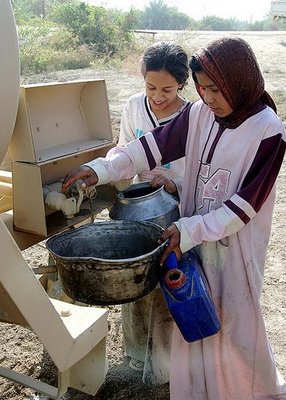 Last week, the U.S. Army released its new
Last week, the U.S. Army released its new 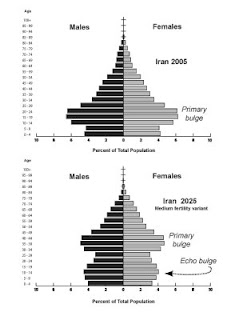 In their provocative article in The National Interest entitled “
In their provocative article in The National Interest entitled “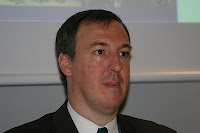 The lawyers are out at the
The lawyers are out at the 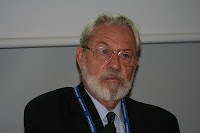 Michael Bothe, an expert on the environment and laws of war from Goethe University in Frankfurt, Germany, suggested
Michael Bothe, an expert on the environment and laws of war from Goethe University in Frankfurt, Germany, suggested  The conflict over resource-rich Kashmir has sparked renewed tension between India and Pakistan, this time over access to one of Asia’s most indispensable commodities: water. The latest dispute erupted on September 13, 2008, with allegations by Pakistan that India had violated a 2005 World Bank agreement over the operational schedule of the Baglihar Dam, which lies on the Chenab River, just inside Indian-administered Kashmir. That agreement “required that filling [of the dam] should take place between June 21 and Aug 31 with prior consent of Pakistan and subject to a condition that river flows should not drop below 55,000
The conflict over resource-rich Kashmir has sparked renewed tension between India and Pakistan, this time over access to one of Asia’s most indispensable commodities: water. The latest dispute erupted on September 13, 2008, with allegations by Pakistan that India had violated a 2005 World Bank agreement over the operational schedule of the Baglihar Dam, which lies on the Chenab River, just inside Indian-administered Kashmir. That agreement “required that filling [of the dam] should take place between June 21 and Aug 31 with prior consent of Pakistan and subject to a condition that river flows should not drop below 55,000 